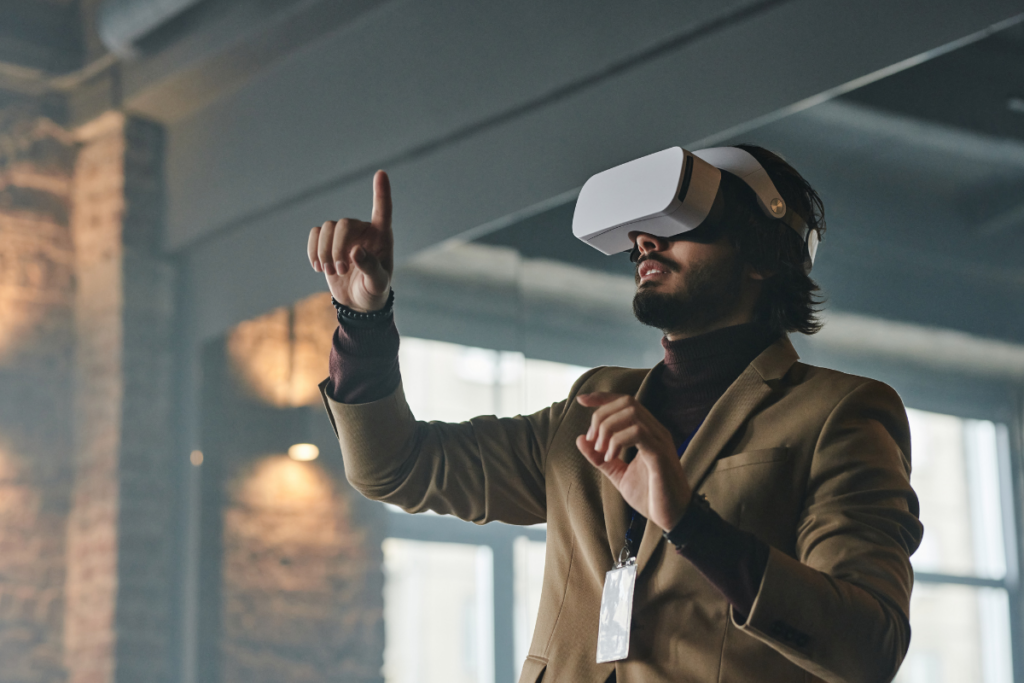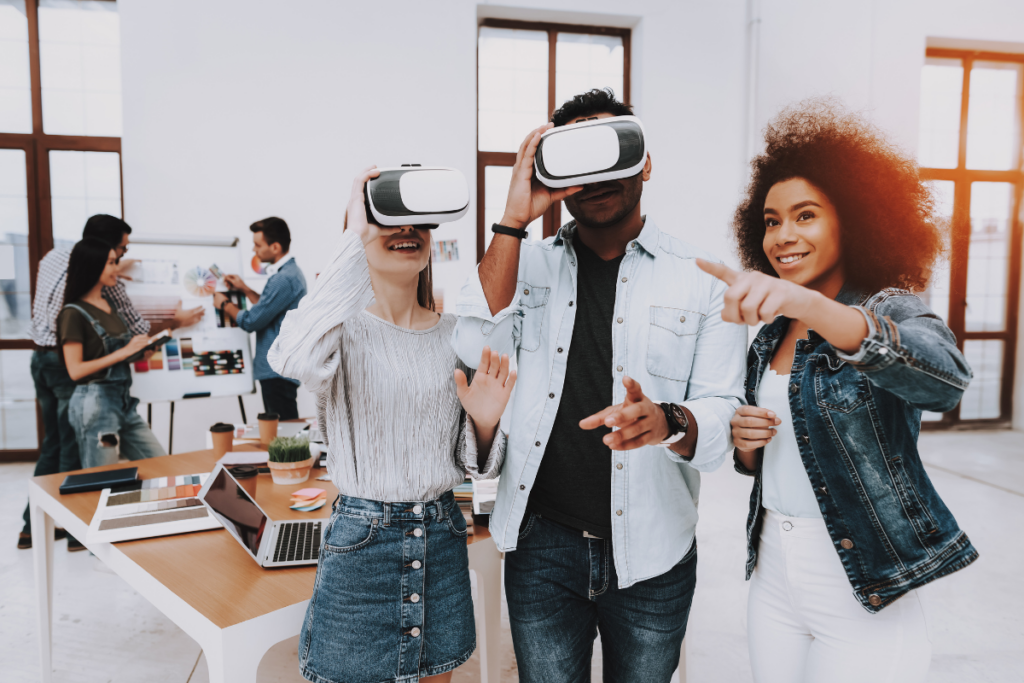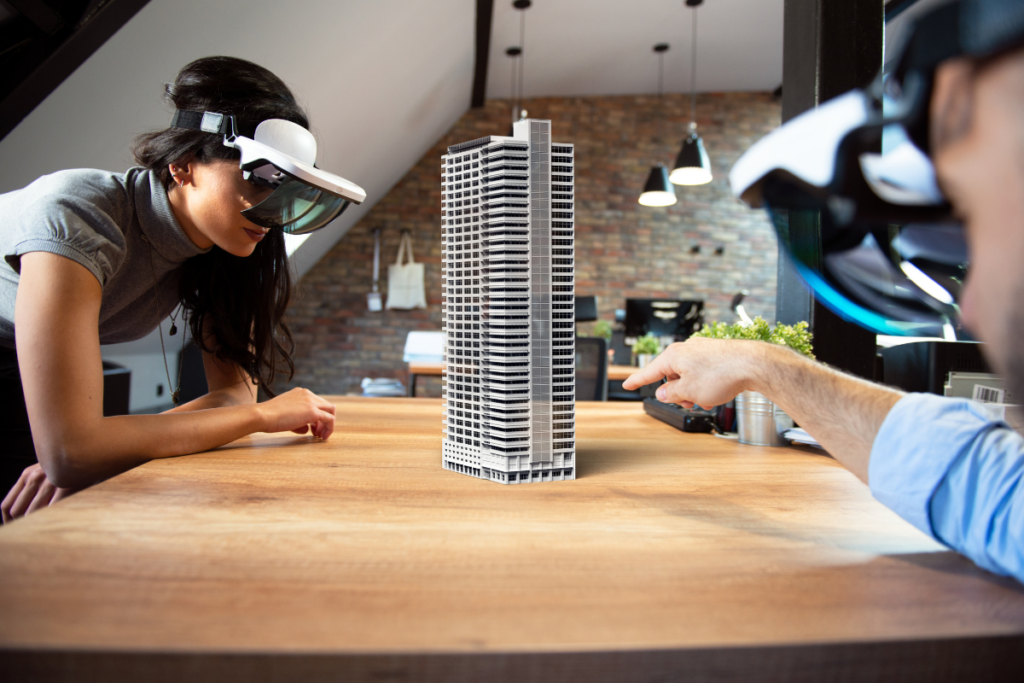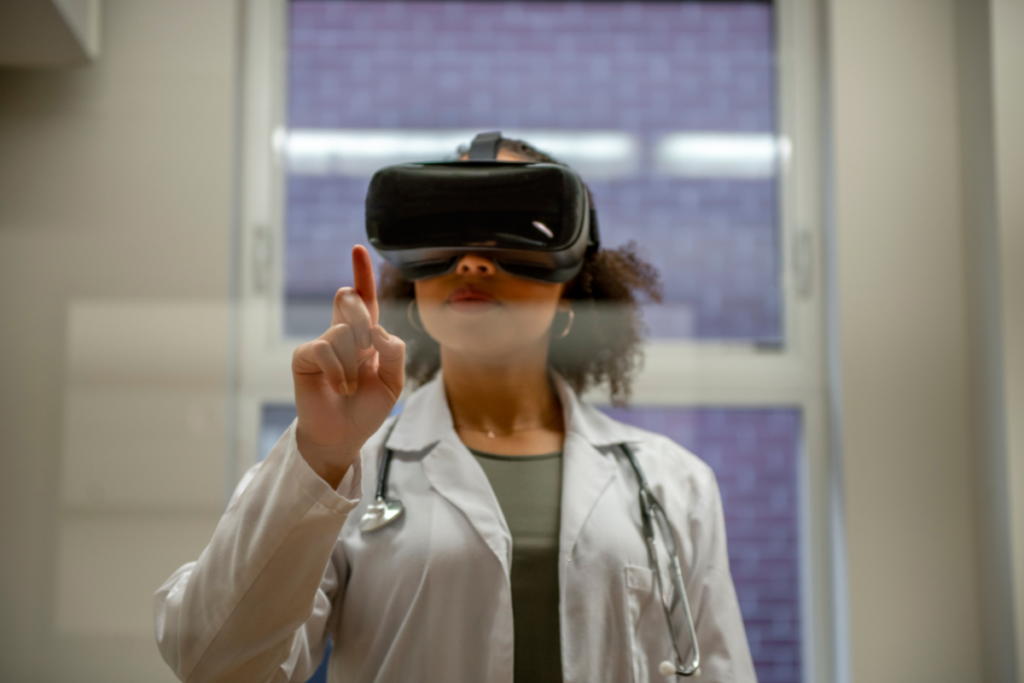Why Immersive Technologies are Booming in the Netherlands
Across diverse modes of extended reality, companies are tapping into Dutch innovation and ingenuity to transform the future of life, work and leisure
From augmented reality headsets to fully digital environments, immersive technologies are revolutionizing the way people engage with the world around them. In this fast-growing landscape, the Netherlands has emerged as a dynamic hub for immersive tech investments, drawing the attention of global companies, investors and startups alike. The country’s momentum is fueled by its robust digital infrastructure, collaborative tech ecosystem, business-friendly policies, high-quality talent pool and vibrant creative economy. Put together, these ingredients enable businesses to innovate extended reality applications across industries, including healthcare, high-tech systems, maritime, design, education and entertainment.
Why do so many immersive tech companies choose the Netherlands as their European base? Continue reading to learn how the Dutch ecosystem positions companies to pioneer dramatic advances in how we design, connect, learn, work and relax on new frontiers of reality.
A thriving tech ecosystem and immersive tech community
The Netherlands’ close-knit tech sector and innovation ecosystem offer fertile ground for startups and established players to push the boundaries of extended reality (XR), an umbrella term encompassing augmented reality (AR), virtual reality (VR), mixed reality (MR) and digital twins. National organizations such as Dutch XR, ClickNL, VR/AR Chapter Netherlands, Dutch Digital Design and the Dutch Game Association are integral to the fabric of the Dutch immersive tech community, bringing together the best minds in the field. At a local level, cities like Amsterdam, Rotterdam, Utrecht, Hilversum and Eindhoven operate as industry hubs where organizations like StartupAmsterdam, Shine Network, UtrechtInc, Media Campus NL and Brainport Eindhoven facilitate collaboration and support immersive tech companies.
Thanks to this supportive environment, the Dutch ecosystem has produced more than 150 startups focused on immersive technology as their core business, with another 300 working on digital twin technology. These home-grown innovators are joined by renowned international companies such as Nvidia, Meta, Unilever, Epic Games, NEP Group, ASML and Snap Inc. that conduct immersive tech research in the Netherlands.
The Netherlands is also home to Immersive Tech Week in Rotterdam, Europe’s top XR conference. Attended by more than 3,000 industry leaders, startups, scaleups, academics and policymakers from around the world, this annual tech event highlights how the Netherlands is leading the way in immersive technologies by fostering global knowledge-sharing.
An advanced research network and skilled talent pool
Further strengthening this ecosystem, the Netherlands features numerous knowledge institutions that propel research & development on immersive tech through triple helix partnerships. The 3EALITY initiative at High Tech Campus Eindhoven cultivates a collaborative environment in which companies can explore and advance immersive technologies, focusing on special computing and digital twins. At Utrecht University, the Motion Capture and Virtual Reality Lab is one of the few labs worldwide that allows simultaneous, detailed motion capture of multiple actors. Tilburg University’s DAF Technology Lab is a state-of-the-art research, education and training facility focused on VR, XR and AR, while the University of Amsterdam’s Visualisation Lab facilitates projects in computer graphics and VR/AR.
These universities, and others such as TU Delft and TU Eindhoven, are training the next generation of talent in the industry. More than 250 Dutch scientists work specifically on immersive tech and digital twins, as programs in computer science, engineering and creative industries produce a steady stream of new graduates well-versed in emerging technologies. Overall, the Netherlands’ multilingual and digitally adept workforce makes it easier for international companies to operate and collaborate across borders.
Supportive, forward-thinking business environment
The Dutch government has introduced policies and incentives aimed at accelerating immersive tech development and attracting investment. For example, the country’s Innovation Box tax policy provides significant tax benefits for innovative activities, while the WBSO tax credit helps companies lower R&D costs. The Netherlands is also investing €275 million through its National Growth Fund to provide test locations, train talent and accelerate the adoption of immersive technologies. The Creative Industries Immersive Impact Coalition, a national initiative backed by a consortium of 120 partners, is leveraging this fund to subsidize talent development, R&D and market activation – with the aim of revolutionizing the creative sector and positioning the Netherlands as a global leader in immersive content.
As the Netherlands makes strides in artificial intelligence and upgrading its infrastructure, including the rollout of 6G networks with regional field labs, companies are better positioned to work seamlessly and develop sophisticated XR applications in their fields. Furthermore, the Netherlands’ emphasis on responsible innovation provides a balanced environment where companies are encouraged to innovate while pursuing positive societal impact.
A place where innovation reaches across industries
Companies that work with the Netherlands are at the forefront of implementing immersive technologies, with high adoption rates in Dutch industries such as healthcare (56 percent), education (52 percent) and entertainment (43 percent). In the realm of education, companies and schools are eager to use these digital tools for more efficient teaching. The Dutch Edtech Foundation unites more than 150 companies and organizations to advance the education tech ecosystem, exemplified by innovators like CES award winner Dialogue Trainer which applies immersive VR to enhance communication skills training and Npuls which focuses on adapting XR in education.
The Dutch life sciences & health ecosystem is also embracing immersive technologies. Dutch powerhouse Philips is working with partners like UMC Utrecht to rapidly adopt and advance VR, AR and digital twin technologies that enable 3D visualization in surgeries, upgrade clinical workflows and transform physician-patient interactions with personalized treatment. Opportunities abound for global companies to test, validate and scale new immersive tech solutions in collaboration with the Netherlands’ hospital network.
Similarly, Dutch advancements in immersive tech are making a big impact on global entertainment, thanks to the country’s forward-looking creative industry. Design agencies, game developers and media companies, together with associations like ClickNL, catalyze growth in adapting immersive technologies for video games, media production, design, museums and live events. In the field of urban planning, the Netherlands’ dense metropolitan areas and sophisticated transportation networks are ideal for piloting new immersive technologies. One example is the Digital Urban Planning Lab in Amsterdam, which is helping to develop a digital twin of the city for urban management and climate adaptation.
For smart manufacturers and high-tech companies, the Netherlands offers a thriving ecosystem where international companies can integrate their systems with immersive technologies and digital twins. When the coronavirus pandemic restricted travel, Dutch semicon tech giant ASML developed nimble AR solutions that allowed the company’s engineers to remotely monitor and maintain its critical systems. Today, ASML continues to experiment with VR, AR and digital twins as part of a wider smart industry ecosystem in the Eindhoven region. Other industrial players in the Netherlands, such as Shell and Tata Steel, use digital twins to optimize their production processes and predict maintenance via Internet-of-Things data and AI.
Last but not least, the Netherlands is combining its world-renowned expertise in maritime and water technology with immersive technologies. The CSMART Academy at the Arison Maritime Center in Almere provides unparalleled programming and simulated exercises to train deck and engineering officers for various maritime scenarios. The Dutch are also using digital twins for vital infrastructure like the Afsluitdijk dyke to enhance water management.
Create the future of immersive technology with the Netherlands
With a collaborative ecosystem, skilled talent pipeline and a government committed to innovation, the Netherlands has solidified its reputation as a global epicenter for transformative technologies. For companies and investors seeking a foothold in Europe amid growing demand for immersive tech solutions, the Dutch ecosystem offers a compelling mix of innovation, connectivity, creativity and reliability.
Want to learn more about how the Netherlands empowers companies to capitalize on the next big wave of digital transformation? Contact NFIA to discover how you can play a central role in shaping the future of how we interact with digital and physical worlds.
24 March 2025


